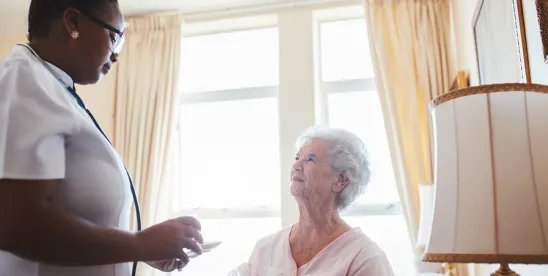The U.S. Department of Justice began an initiative this week to pursue and “bring to justice” nursing homes that provide “grossly substandard care.” The initiative is not meant to accuse the long-term care industry in general, Attorney General William Barr said.
Barr announced on March 3 that the DOJ’s National Nursing Home Initiative would “coordinate and enhance” civil and criminal efforts against what the DOJ considers to be the most problematic nursing homes. (Read more here: https://www.justice.gov/opa/pr/department-justice-launches-national-nursing-home-initiative)
The announcement does not specify the civil and criminal efforts to be taken.
The DOJ has begun investigating about 30 facilities in nine states. It did not identify the facilities or the states.
In determining its target facilities, the DOJ will consider factors including consistently inadequate nursing staff, hygiene and infection control, offering sufficient food to residents, withholding pain medication, and using physical or chemical restraints.
“I must point out that none of this is an indictment of the assisted-living industry as a whole,” Barr said. “There are many terrific facilities out there being managed by wonderful people with dedicated staff. To be sure, most of them are great, delivering the care that their residents need and deserve.”
The National Nursing Home Initiative will be coordinated by DOJ’s Elder Justice Initiative, which combats elder abuse, neglect, financial fraud and scams; U.S. Attorneys’ Offices; and the U.S. Department of Health and Human Services.
Barr said: “Millions of seniors count on nursing homes to provide them with quality care, and to treat them with dignity and respect when they are most vulnerable. Yet, all too often, we have found nursing home owners or operators who put profits over patients, leading to instances of gross abuse and neglect. This national initiative will bring to justice those owners and operators who have profited at the expense of their residents, and help to ensure residents receive the care to which they are entitled.”
The American Health Care Association, which represents long-term care providers, had not released a response as of the evening of March 5.




 />i
/>i

